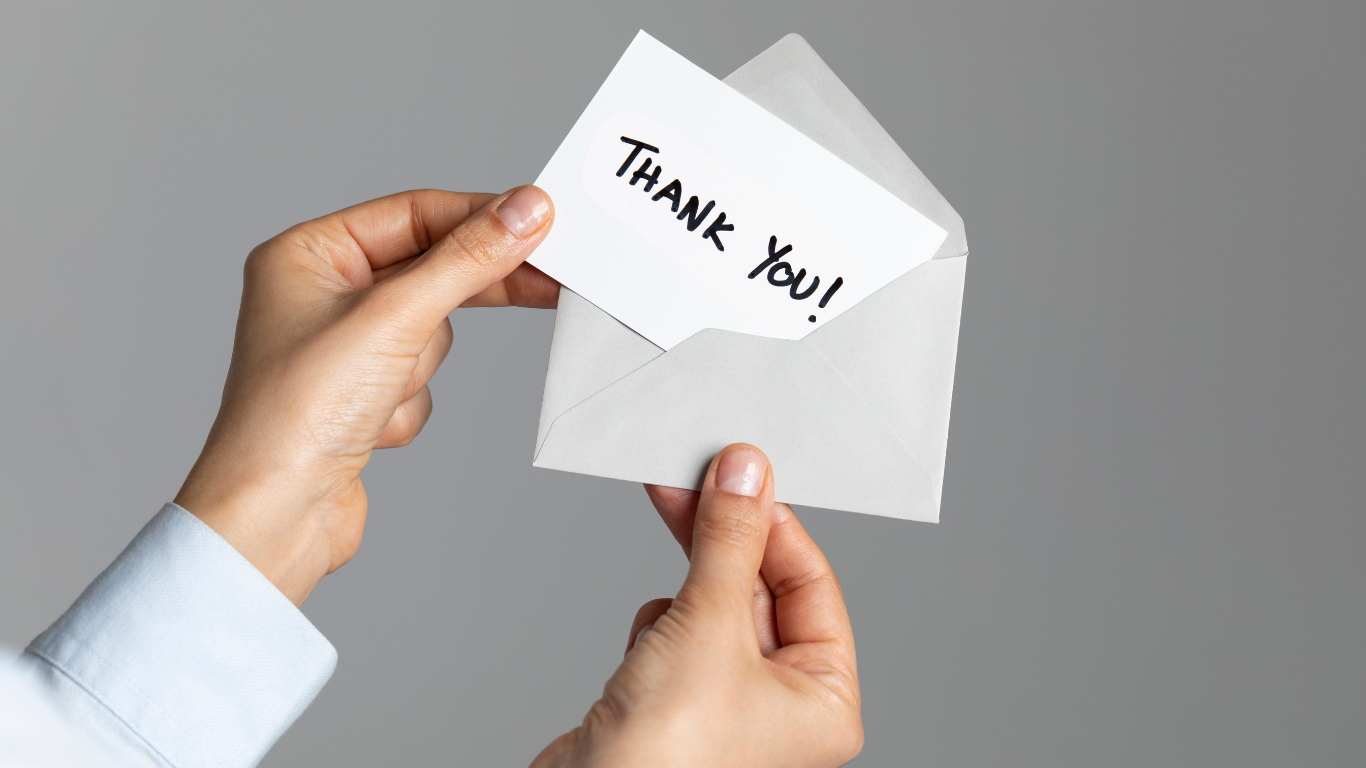Why You Shouldn’t Skip Sending a Thank You Note

In today’s world of job hunting, some traditions are at risk of fading into oblivion. One such tradition is sending a thank you note after a job interview, largely due to the prevalence of email and the speed it offers. While it might seem like a small gesture, it carries significant weight and can set you apart from the competition as someone who values tradition and attention to detail. In this post, we’ll explore why sending a thank you note after an interview is still crucial, offer some tips on what to include, and discuss the choice between a formal thank you card and an email.
Why Sending a Thank You Note After an Interview is Important
Showcases Your Appreciation: Sending a thank you note demonstrates your gratitude for the opportunity to interview. It shows that you respect the time and effort the interviewer(s) invested in meeting with you.
Reiterates Your Interest: A thank you note allows you to reiterate your enthusiasm for the position and the company. This reaffirmation of interest can be a powerful reminder for the hiring manager.
Leaves a Lasting Impression: In a competitive job market, standing out is crucial. A well-crafted thank you note can leave a lasting positive impression that might tip the scales in your favor.
Demonstrates Your Professionalism: Sending a thank you note is a sign of professionalism. It shows that you are attentive to details and possess excellent communication skills, both of which are highly valued in the workplace.
Tips on What to Include in Your Thank You Note
Personalization: Address the note to each person you interviewed with, if applicable. Mention specific points from the interview that left an impact on you, such as a project or a company value.
Gratitude: Express sincere appreciation for the opportunity to interview, and be sure to thank the interviewers for their time and insights.
Reiteration of Interest: Reiterate your interest in the position and the company. Highlight how your skills and experiences align with the job requirements and company culture.
Key Takeaways: Reflect on the interview by summarizing the key takeaways or skills you bring to the table. This reinforces your suitability for the role.
Follow-Up: Mention any follow-up actions discussed during the interview, such as providing additional documents or references.
Professional Tone: Maintain a professional tone throughout the note. Avoid informal language or overly casual expressions.
Formal Thank You Note vs. Email:
The choice between sending a formal thank you card or an email largely depends on the company culture, the urgency of the hiring process, and your personal preferences. Here’s a breakdown:
Formal Thank You Note
- Ideal for more traditional or conservative industries.
- Shows extra effort and thoughtfulness.
- Takes longer to reach the recipient, so it might not be suitable for time-sensitive interviews.
Email:
- Faster and more convenient, making it suitable for time-sensitive situations.
- Appropriate for tech-savvy companies or roles in industries where digital communication is the norm.
- Can still be personalized and thoughtful.
Sending a thank you note after an interview is a simple yet impactful way to leave a positive impression on potential employers. It’s a tradition worth reviving in a world where digital communication often overshadows handwritten gestures. Whether you choose a formal thank you card or an email, the key is to express genuine gratitude, reiterate your interest, and leave a lasting professional impression. So, don’t underestimate the power of a well-crafted thank you note; it could be the key to landing your dream job.

0 Comments